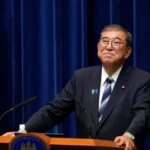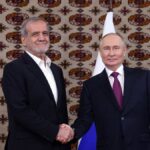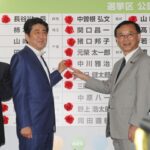Table of Contents
On April 2, 2025, President Donald Trump announced a sweeping new set of tariffs dubbed the “Liberation Day” tariffs, aimed at reshaping America’s trade relationships and addressing critical issues like the fentanyl crisis. However, just weeks later, the U.S. Court of International Trade (CIT) handed down a surprising and significant ruling: these tariffs violated the International Emergency Economic Powers Act (IEEPA) and were therefore unlawful.
This decision sends shockwaves through U.S. trade policy and raises important questions about the limits of presidential authority, the future of U.S.-China trade relations, and the broader economic consequences. Let’s break down the ruling’s implications and what they mean for the U.S. economy moving forward.

The Court’s Decision: A Check on Presidential Trade Power
The CIT’s unanimous ruling struck down key elements of the “Liberation Day” tariffs, including:
- A global 10% tariff on imports,
- A 25% tariff targeting countries linked to fentanyl production (including Canada and Mexico),
- “Reciprocal” tariffs based on the trade deficits of America’s partners,
- Tariffs up to 145% on Chinese imports.
The court ruled that President Trump overstepped his authority by using IEEPA, designed for emergency economic actions, to impose broad tariffs that were not tailored to specific national emergencies. In particular, the court noted that Congress did not grant the president unlimited power to declare trade deficits or drug trafficking as emergencies justifying such sweeping tariffs.
This ruling underscores judicial skepticism toward presidents using emergency powers as a blanket tool for trade policy, reaffirming that such decisions must maintain congressional oversight and democratic accountability.

What Remains and What’s Lost
Importantly, the court ruling only invalidates tariffs imposed under IEEPA. Other trade measures remain unaffected, including:
- Section 232 tariffs based on national security concerns, such as those on steel and aluminum,
- Section 301 tariffs targeting unfair trade practices, particularly those involving China.
Still, the ruling restricts the administration’s ability to quickly impose wide-reaching tariffs without congressional approval. Without IEEPA as a legal foundation, the White House may need to rely more heavily on existing trade laws like Sections 232 and 301 or push Congress to grant new powers for trade actions.

Economic Consequences: Uncertainty and Market Impact
While blocking some tariffs, the ruling does not eliminate the economic uncertainty that has gripped markets. In fact, this volatility may increase as the administration pivots to alternative tools to advance its trade agenda.
Economic uncertainty has tangible costs. It delays business investments, reduces consumer confidence, and disrupts supply chains. The U.S. economy already contracted by 0.3% in early 2025, partly due to these tariffs and their unpredictable enforcement. Consumer prices have risen significantly, with apparel costs soaring by 17%, and inflation is expected to climb further.
Financial markets have responded with volatility, as investors react nervously to shifting policies and the risk of continued trade conflicts. This uncertainty imposes a hidden “tax” on economic growth that no tariff can capture but affects real households and businesses.
Can the Damage Be Reversed?
Some of the economic harm caused by the “Liberation Day” tariffs may be mitigated over time, but reversal is not automatic. Legal rulings can halt new tariffs, but restoring investor and consumer confidence requires consistent, clear policies.
Supply chains disrupted by tariff risks take time to realign, and investment decisions delayed by uncertainty often do not immediately return. Policymakers must prioritize credibility and coherence to rebuild the foundations of economic growth and maintain U.S. competitiveness.

Looking Ahead: What Comes Next?
The Trump administration has appealed the CIT decision and may seek further court stays to maintain tariff authority during litigation. At the same time, international trading partners are watching closely, and uncertainty about U.S. trade policy could hinder ongoing negotiations.
Domestically, policymakers face the challenge of balancing national security, economic competitiveness, and legal constraints. The administration may intensify its use of other trade statutes or seek congressional action to legitimize broader tariff powers, but political hurdles remain.
The bottom line is clear: for the U.S. to maintain effective economic leadership, it must establish a transparent and credible trade policy framework. Without reducing policy uncertainty, the costs to growth, jobs, and international relations will continue to mount.
Author Profile

- Li Li, associate professor and master’s supervisor at Southwest University. B.A. in English for Education from Southwest Normal University, M.A. in English Translation and Interpretation from China Foreign Affairs University, Ph. D. in Japanese Cultural History from Nankai University (all above are in China). Also has studied at Osaka Sangyo University and Kokugakuin University in Japan and been a Fulbright visiting scholar to Western Kentucky University in US. A multidisciplinary and versatile instructor with a trilingual mastery of Chinese, English and Japanese, known for Combining foreign language teaching with history and humanity cultivation. Academic researches center on Japanese history, international relations and Western culture studies. Work experiences include teaching at Capital Normal University, Chongqing Normal University, and Southwest University. Has published multiple academic papers, translated works, authored or co-edited several textbooks and monographs; provided language services for several high-level and high-profile international events.
Latest entries
 PoliticsSeptember 7, 2025Japan’s Prime Minister Shigeru Ishiba Resigns Amid Election Defeats:What’s Next for Japan?
PoliticsSeptember 7, 2025Japan’s Prime Minister Shigeru Ishiba Resigns Amid Election Defeats:What’s Next for Japan? GeopoliticsAugust 22, 2025The Limits of Russia’s Friendship: Moscow’s Calculated Response to the Iran Crisis
GeopoliticsAugust 22, 2025The Limits of Russia’s Friendship: Moscow’s Calculated Response to the Iran Crisis Japanese PoliticsJuly 22, 2025Japan’s Upper House Election: Prolonged Instability and Its Impact on Domestic and Foreign Policy
Japanese PoliticsJuly 22, 2025Japan’s Upper House Election: Prolonged Instability and Its Impact on Domestic and Foreign Policy Middle East AffairsJuly 20, 2025Will Israel Ever Face Consequences for Bombing Its Neighbours?
Middle East AffairsJuly 20, 2025Will Israel Ever Face Consequences for Bombing Its Neighbours?



8 comments
Great work
Hey there I am so happy I found your weblog, I really found you by accident, while I was looking on Yahoo for something else, Regardless I am here now and would just like to say thank you for a incredible post and a all round enjoyable blog (I also love the theme/design), I don’t have time to look over it all at the moment but I have book-marked it and also added your RSS feeds, so when I have time I will be back to read more, Please do keep up the excellent job.
In the grand design of things you receive a B- with regard to hard work. Exactly where you misplaced me was first in your details. As it is said, the devil is in the details… And it couldn’t be more accurate here. Having said that, allow me say to you exactly what did give good results. Your writing is certainly highly engaging and that is probably the reason why I am making an effort in order to opine. I do not make it a regular habit of doing that. Second, even though I can easily notice the jumps in reasoning you make, I am not certain of just how you appear to connect the points which inturn make your final result. For now I shall yield to your point but trust in the foreseeable future you link your dots much better.
Thanks for some other informative blog. Where else may I get that type of info written in such an ideal means? I’ve a mission that I am just now running on, and I’ve been on the glance out for such info.
Thank you for the good writeup. It in fact was a leisure account it. Look complicated to more introduced agreeable from you! By the way, how could we communicate?
What’s Taking place i’m new to this, I stumbled upon this I’ve found It absolutely useful and it has aided me out loads. I’m hoping to give a contribution & aid different customers like its helped me. Good job.
I do agree with all of the ideas you’ve presented in your post. They are really convincing and will definitely work. Still, the posts are too short for newbies. Could you please extend them a little from next time? Thanks for the post.
Have you ever thought about including a little bit more than just your articles? I mean, what you say is important and everything. However think of if you added some great pictures or video clips to give your posts more, “pop”! Your content is excellent but with images and video clips, this blog could certainly be one of the very best in its niche. Great blog!